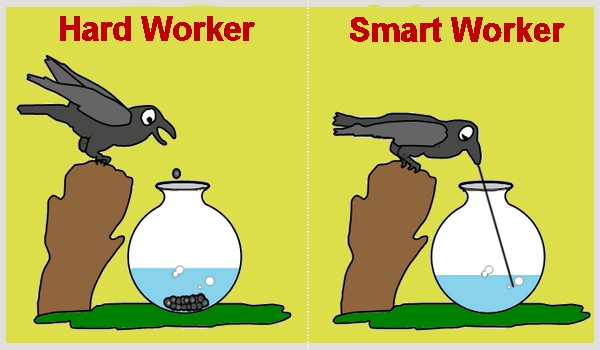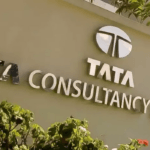With the advent of digital platforms and various other disruptive technologies, the focus of organisations seems to be shifting from quantity to quality, which is why some believe the smart workers are expected to be more successful as compared to the hard workers. However, this is a long debatable topic with two ends weighing equal depending on the context.
Mukund Menon, Director – HR and Communications, International Paper India
Without doubt, present day leaders are expected to be sensitive to the demands of business and market place. The sweat shop approach, volume utility only game and labour arbitrage will become obsolete very soon.

One of the most typical questions asked in a T20 cricket match is – Who’s better: the player who kept his wicket long enough and scored runs by taking singles and sweating it out through the match, or the one who stayed for a short time but scored ‘fours’ and ‘sixes’ to get the same score. It is forever debatable.
The ability to adapt to a situation and evolve one’s own strategy to come out successful is the key. In today’s world where everything is about being smart right from the phone that we use, it is clear that we want everything that is faster, better and cheaper. Competition is fierce and innovation is creating new markets and products. Consumers are willing to wait and pay for the best product, while rejection is quick if products don’t deliver the promise. The market place has evolved into a smart, informed and a well-connected.
Without doubt, present day leaders are expected to be sensitive to the demands of business and market place. The sweat shop approach, volume utility only game and labour arbitrage will become obsolete very soon. The cost is not the only driver anymore. The global standards of quality, customer experience, value for money and sustainability drive new thought processes, culture and behaviour for leaders driving businesses. A smart leader would obviously look at innovative and smart ways of managing their competition, and growing the business.
The desired leadership traits have also changed over the period of time. Earlier, a leader’s success used to be gauged by hard work, determination and staying in power. On the other hand, today’s leader is expected to be quick in taking decisions, willing to change, savvy in the market place, emotionally stable and matured, is able to assemble a good team, global exposure and being good at fiduciary and people skills.
Emerging leaders who are smart, well informed, agile, strategic, business and number focused, people-focused and who have a global exposure are successful. Customer experience and quality has become a vital ingredient for survival and sustainability. Entrepreneurism is the new norm, even if you are working for a corporate; you are expected to be enterprising and entrepreneurial.
It’s a new India, where the market is challenging the status quo. Disruptive practices, products and services are making inroads and in this scenario, one has to be way smarter.
Rajesh Tripathi, VP and Head-HR, GHCL
I am often reminded of the Aesop’s fable ‘The crow and the pitcher’, though often cited to highlight a totally different moral; it is an apt example of how smart thinking and hard work gets the job done.

The terms Smart worker and Hard worker are only clichés that are used to testify one’s approach towards a given work or assignment. In my experience, I have observed that it is only the changes in one’s circumstances and context which make a person a smart worker or a hard worker. Both are not exclusive to each other, but most often go hand-in-hand.
To effectively manage a challenging work scenario, one has to have the creativity to come up with better and more effective ways of getting the work done and at the same time, be ready to put in whatever hard work is required to meet the challenge.
Attributes such as intelligence, cognitive ability, and adaptability are often associated with a smart worker; however every person, who wishes to be successful in life, has to play the dual role of being a smart as well as a hard worker. Being one of the two doesn’t suffice – one has to be both.
With regards to leadership qualities, I think a person who can switch on and switch off in life, responding to the demand of a situation will eventually turn out to be a good leader. In addition, qualities such as respect, trust, ownership of work, transparency, communication and endorsing integrated team work, make a person an effective leader. One who is completely in symmetry with the values and culture of the organisation, will invariably be setting examples for others and will also facilitate the organisation in spreading the right message.
I am often reminded of the Aesop’s fable ‘The crow and the pitcher’, though often cited to highlight a totally different moral; it is an apt example of how smart thinking and hard work gets the job done. The thirsty crow in the story raise the level of that little water in the pitcher by dropping pebbles into it. Smart thinking helped the crow find a way to quench his thirst and probably saved his life. However, the crow still had to fly about picking up pebbles and dropping them one by one into the pitcher until the water came high enough for him to drink.
Had the crow not came up with the smart idea it probably would have perished out of thirst similarly had the crow not put in the hard work to implement the smart idea it would still have perished. Smart working thus does not mean the absence of hard work; it means knowing how best to and where to put in the hard work, and a leader must have both attributes in equal measures.
Charu Maini, Vice President – Human Resources, Pearson India
Higher up in the corporate hierarchy, the added responsibilities demand increased smartness. Hard work can be equated to operational excellence whereas smart work is more explained by strategic thinking.

“I choose a lazy person to do a hard job because a lazy person will find an easy way to do it.” Bill Gates quipped once.
Gates’ sentiment was truly reflective of the celebrated study by the pioneer of scientific management, Frank B. Gilbreth Sr. who in 1920 evaluated the motions of workmen to determine the most efficient techniques to perform various tasks. Astonishingly, he found that he could learn the most from lazy but smart men who made their every step count as against the more regular, hardworking and routine bound men.
Now, in todays’ world that’s driven by disruptive innovations and geo-political events, innovative ideas and newer skills have replaced hard work as the prerequisite for success. So, what actually defines smart work? It’s all about making smart choices at the right time, involving smarter people to strategise, lead and take smartest decisions in the interest of the organisation as a whole.
Higher up in the corporate hierarchy, the added responsibilities demand increased smartness. Hard work can be equated to operational excellence whereas smart work is more explained by strategic thinking. If I draw a parallel to the illustrious Peter Drucker’s view, hard work is about doing things right but smart work is more about how to do right things.
However, organisations tend to mix between hard work and long working hours; here, the Infosys chief mentor NR Narayana Murthy’s famous taunt of ‘people who spend longer hours at office are error prone and grouchy due to fatigue’ summarises the real side of the story.
Today, organisations limit their smartest staff to core positions or to more vital positions created in line with new and emerging challenges, leaving out the low profile or non-priority functions to outsiders through outsourcing or contracts. A few examples are – cryptographers (who gauge how hackers go about invading computer systems), toy idea professionals, Resinators (who create engaging marketing campaigns) or Masters of Disasters who work on possible crises. At BMW, the position of a trend predictor is one of the most sought-after roles within the organisation.
The power of strategic thinking has overtaken mundane jobs to a different level, dolling out names such as Ambassadors of Buzz, Digital Prophets or even Head of Futuring to give a modern face lift to regular positions.
The global business environment has become extremely unpredictable and challenging. Automotive, banking, oil and telecom sectors are few examples where innovation and fast changing trends, largely driven by small enterprises, have made several large companies outdated and redundant. Start-ups and smarter and leaner organisations have done well; from Uber to Tesla, the disruptive technologies rule the roost today. In short, start-ups those are the by-products of smart thinking score over large enterprises today.
Value our content... contribute towards our growth. Even a small contribution a month would be of great help for us.
Since eight years, we have been serving the industry through daily news and stories. Our content is free for all and we plan to keep it that way.
Support HRKatha. Pay Here (All it takes is a minute)





































If we refer Darwin, it has always been that not strongest (hard worker etc) but the fittest (smartest) is to survive. So is the leadership race.
I have gone through all the opinions expressed about a smart and hard worker. I feel both complement each other. This again depends on the situation and circumstances and how the Management views it. It is like an organization consists of learners, contributors, performers, Anchors and Role Models. Role Models are few and Anchors are many. Anchors are both hard and smart workers and a few are hard workers so we need both the competencies.
In terms of leadership one needs to be situational as a leader which means one needs to be grounded at times and sometimes one needs to exhibit mercurial qualities and can always be in a elite panel. To me leadership has to be grounded to be a successful leader.
.
But if Lazy person is dumb it could not be true, hardworker is the one who already find the easy way in a job yet he consistently pursuing his goal!!